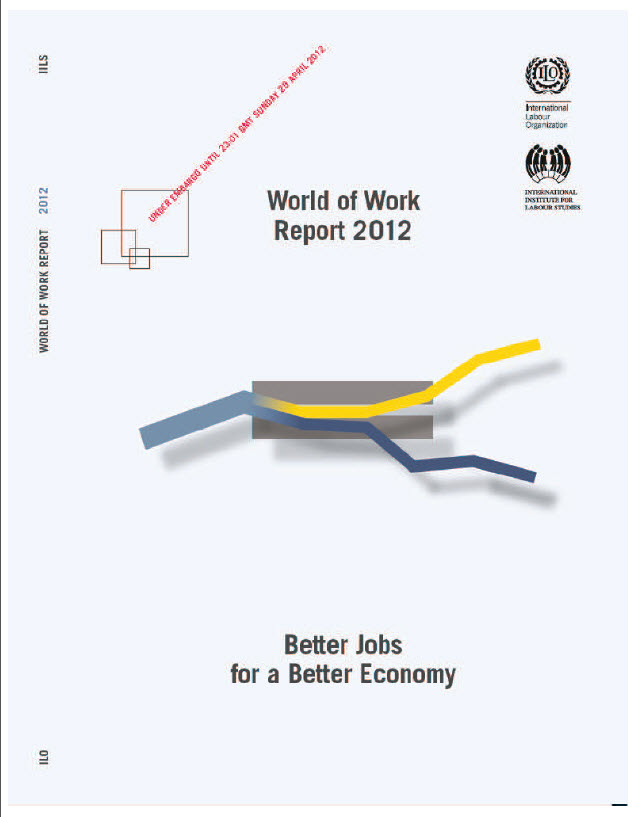This is an archive of news stories and research from the National Union of Public and General Employees. Please see our new site - https://nupge.ca - for the most current information.
The world needs to create 50 million jobs to return to pre-crisis employment levels, according to the ILO, but fiscal austerity and tough labour market reforms threaten a true jobs recovery.
 Geneva (02 May 2012) – Governments should adopt more worker-friendly approaches in dealing with fiscal austerity, according to the recently released International Labour Organization (ILO) World of Work Report 2012. Such a change in policy could result in adding around two million jobs in advanced economies over the next year, as opposed to only about 800,000 if current approaches persist.
Geneva (02 May 2012) – Governments should adopt more worker-friendly approaches in dealing with fiscal austerity, according to the recently released International Labour Organization (ILO) World of Work Report 2012. Such a change in policy could result in adding around two million jobs in advanced economies over the next year, as opposed to only about 800,000 if current approaches persist.
The report charged that the combination of fiscal austerity and tougher labour market reforms – or deregulation – adopted by many advanced economies have proved devastating to job creation, in particular and largely ineffective in reducing fiscal deficits.
"Countries that have chosen job-centered macroeconomic policies have achieved better economic and social outcomes," according to Raymond Torres, the director of the ILO's International Institute for Labor Studies and the report's lead author. "Many of them have also become more competitive and weathered the crisis better than those that followed the austerity path."
Combined with increases in growing income and wealth inequality in many countries, the unemployment situation is also increasing the risk of social unrest in the most-affected economies, according to the 128-page report.
The report estimates that some 50 million jobs are missing compared to the situation before the 2008 financial crisis.
Other main findings of the report include:
- Youth unemployment rates have increased in about 80 per cent of advanced countries and in two-thirds of developing countries;
- Poverty rates have increased in half of developed economies and in one-third of developing economies, while inequality rose in half of developed countries and one-fourth of developing economies;
- On average, more than 40 per cent of job seekers in advanced economies have been without work for more than a year.
- Involuntary part-time employment has increased in two-thirds of advanced economies. Temporary employment has also risen in more than half of these economies.
- In 26 out of the 40 countries for which information is available, the proportion of workers covered by a collective agreement declined between 2000 and 2009.
- 28 per cent of the selected group of emerging and developing countries implemented policies to reduce social benefits during the crisis compared to 65 per cent in advanced economies.
More information:
NUPGE
The National Union of Public and General Employees (NUPGE) is one of Canada's largest labour organizations with over 340,000 members. Our mission is to improve the lives of working families and to build a stronger Canada by ensuring our common wealth is used for the common good. NUPGE
